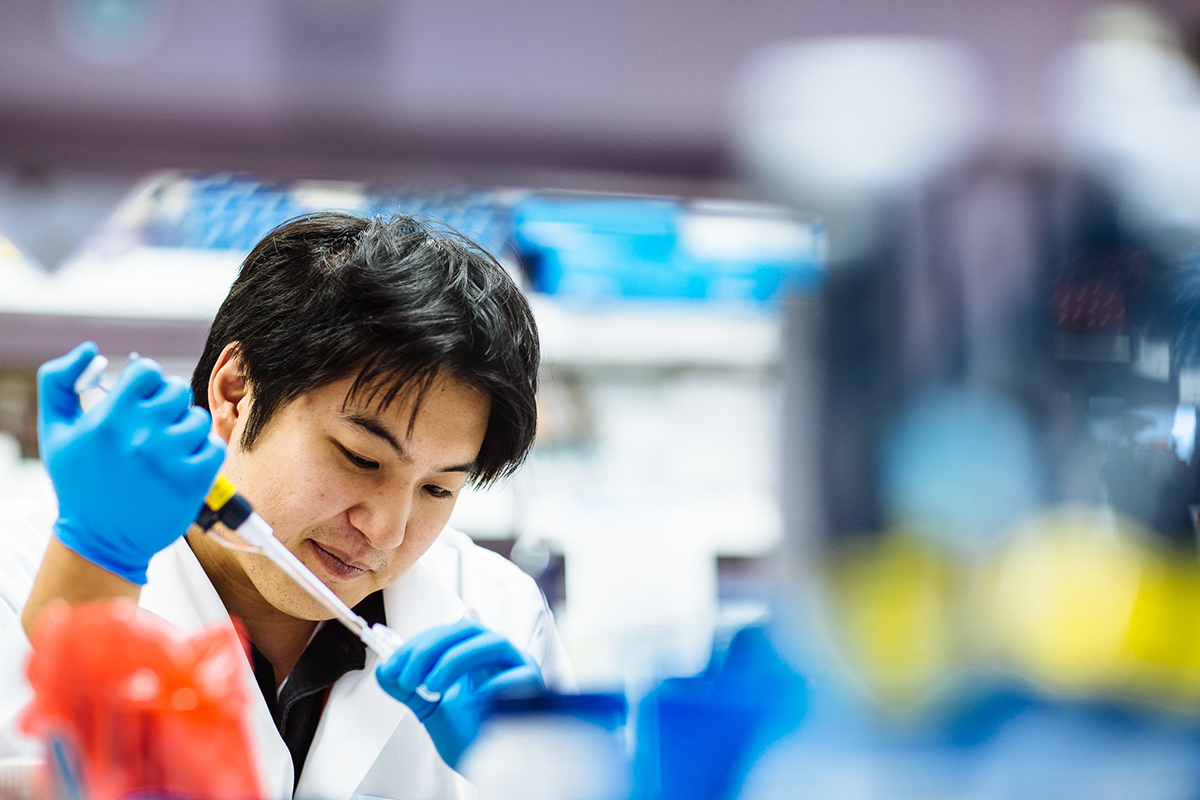Treatment
Pediatric Blood Stem Cell Collection
What You Need to Know
Children's National's Hospital experienced transfusion medicine specialists oversee peripheral blood stem cell collection (PBSC) procedures, performed by the Blood Donor Center's technical staff. The Blood Donor Center team is extensively trained in performing many therapeutic apheresis(1) procedures on pediatric patients. More than 150 PBSC collections in the last six years have been performed by the center. Children's National's Hematopoietic Stem Cell Laboratory processes peripheral blood stem cells for blood and marrow transplantations(2).
Stem Cells
Stem cells are the cells within the body that constantly renew themselves and generate other cells of the body. Peripheral blood stem cells(3) are the cells that come from a person's bone marrow(4). Often these cells become much higher in blood after either chemotherapy(5) (as a response to low blood counts) or after using growth factor-stimulating medicines.
Frequently Asked Questions
Peripheral blood stem cell (PBSC) collection
Stem cell apheresis
Autologous collection
Glossary of Terms
1 Apheresis: The process of removing only a selected type of blood cells from a blood donor and simultaneously returning all the others
2 Transplant: A medical treatment to replace a recipient’s diseased organ or tissues with a healthy organ or tissue from a donor
3 Peripheral Blood Stem Cells: Cells with the potential to produce all the components of blood. Peripheral blood stem cells (PBSC) are obtained from “circulating” blood rather than from bone marrow
4 Bone Marrow: The spongy center of bones that is the “factory” for all blood cells in circulation
5 Chemotherapy: Treatment for cancer using chemical substances designed to kill cancer cells. It is used in large doses to help destroy a patient’s diseased marrow in preparation for a marrow transplant
Meet the Providers of Blood Stem Cell Collection
Jan 29, 2015
Molly's Story
Saved by a bone marrow donation from her brother, Davis, and strengthened by a personalized T-cell therapy post transplant, Molly's life is back on track and she's dancing again.
Departments that Offer Blood Stem Cell Collection

Pathology and Laboratory Medicine
Our Pathology and Lab Medicine team provides advanced diagnostic services for pediatric patients. Learn about our expert laboratory testing, blood draw service and pathology care.

Help Kids and Make a Difference
Invest in future cures to help children have brighter futures.







